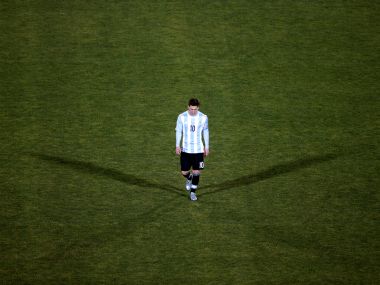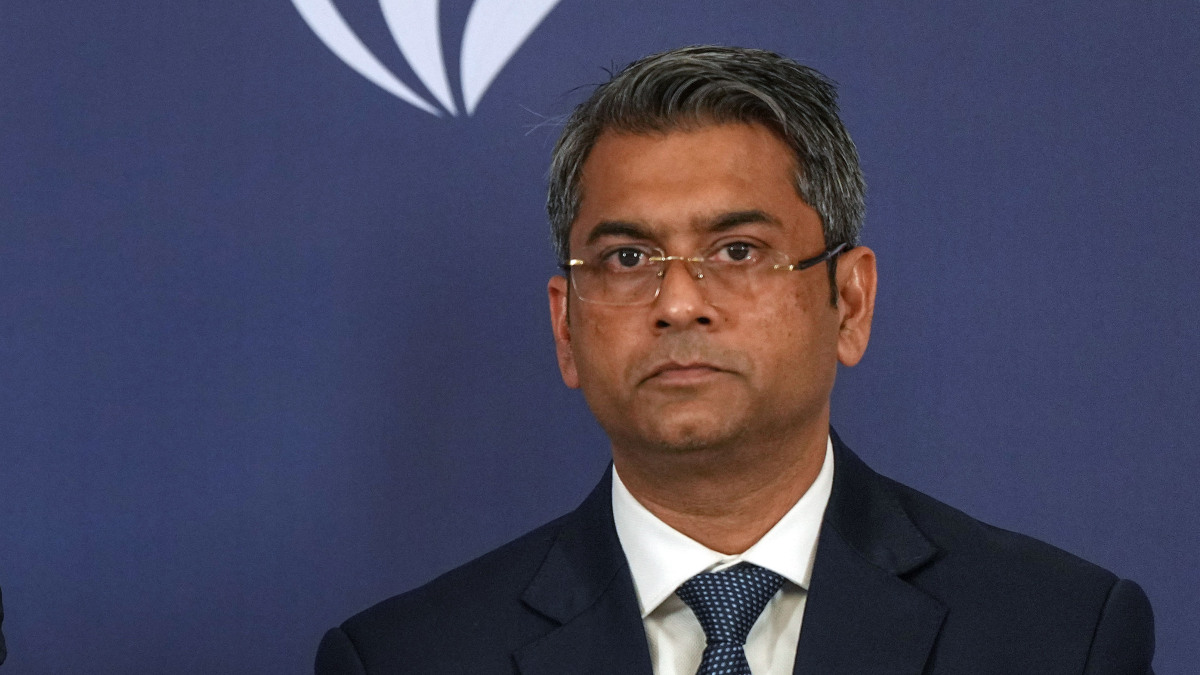The wee hours of a Monday morning; you were up watching the Euro matches last night, and you haven’t called it a night yet. There is no night left to call. A man called Lionel Messi is playing his fourth final for his country. He has incredibly lost all three up till now. He turned 29 three days ago. He just became Argentina’s greatest goalscorer with an astonishing free-kick in the semi-final against USA, surpassing Gabriel Batistuta. Many are saying that the Copa America Centenario isn’t a real competition That it’s showcase. Messi doesn’t care. He is in the final and he has a few demons to deal with.
The game is a tight one. A typical final. The two teams almost score, but they don’t. The two teams almost win, but they don’t. The two teams almost lose, but they don’t. And 120 minutes are over. Deja vu. Time travels fast on a football field, and it travels either way. It takes you forward, it also takes you back. How many times has history repeated itself at a football game? How many times has it been rewritten?
And just like that, Messi and the men around him travel a year back in time. It is Argentina vs Chile, a Copa America final, goalless for 120 minutes, about to be decided on Russian Roulette. But they like to call it a shootout. Messi is ready to alter history. He must. Otherwise it will always be unkind to him.
He goes first for Argentina. Takes his time placing the ball on the spot. His eyes are blank. His face contorted into a mask. What is he thinking? He goes for the top corner. The same top corner he went for, and found, from 35 yards out, with a five-man wall between him and the goal, in the semi-final against USA. He doesn’t find it this time. And he knows it. As the ball whizzes over the crossbar and the Chilean supporters exult behind the goal, as the world gasps, Messi’s shoulders drop, he holds his head in his hands, he is shaking, with the weight of history and expectations that he has carried around since he was 18. It is just too heavy now. For the fourth consecutive time in a final, Argentina lose. It’s all over.
The tears come with a realisation; he has managed to lose four finals in that white and blue shirt. He is used to winning that many in one year in a red and blue shirt. He is used to winning, period. There is no consolation in sport. The silver medals only remind you of your failures. He is now much older, wiser and better than when he was 18. With his overgrown beard, his gaunt eyes, he stands forlorn. Gone is that child-like smile, that face of a 14-year-old. ‘This is not for me’, he thinks. And he goes out and says what he thinks.
Newspapers, television channels have got the headlines, and it is shocking. Chile’s Copa America win is overshadowed. Breaking News: Messi retires from international football. Retire? Messi? Yes.
“It’s not meant for me. For me the national team is over. I’ve done all I can, it hurts not to be a champion,” the man says. He is speaking from his heart. And it really hurts. “It’s been four finals, I tried. It was the thing I wanted the most, but I couldn’t get it, so I think it’s over.” You are shocked, but you get it. You are sad, but you understand. Compared to Diego Maradona since he was a boy, he had his destiny laid out for him. He was supposed to be Argentina’s saviour. Many now call him a disappointment for his nation.
Messi won everything there is to win with Barcelona; he lost three Copa America finals and a World Cup final with Argentina. He gave it all. And he will never wear that white and blue shirt again. He will never win in that shirt, but he’ll never loose as well. It was a momentary decision, an emotional one. One that he might want to reflect on. But, if we take his word, he won’t be leading Argentina in the 2018 World Cup in Russia.
So what will be Messi’s legacy? The thing with sport is that we look at sportspersons, especially the greats, with our custom-made lenses. They are all over the papers, television and internet. Yet we know so less about them. Their lives are almost always framed by a camera following them around. What they say, is read by everyone. What they do is seen by the world. But we fail to see what really connects them to people. We fail to see who they really are, what they really feel. What’s winning for them; confetti and a medal? What’s losing for them; tears and criticism? What is heartbreak for them? Because for us, all of it is commentary. It is post-match analysis, which really analyses so little. We’ll never analyse the number of kids, from affluent neighborhoods to war-torn nations, who started kicking a ball because of Messi.
His decision to hang his boots will be analysed too in the same manner. The experts will throw up a few numbers. Comparisons will be made. People will say Maradona was probably right, Messi lacks personality to lead. They are already saying it . People will say that Messi leaves behind a mixed legacy. One of what could have been, rather than what it is, all the while ignoring what actually is.
Messi’s legacy will remain unchanged, untarnished, unmoved by his ‘failures’ for Argentina. They are not his failures alone, they wouldn’t have been his victories alone too. What he has done for his club and country will never be surpassed. His symbolism will be untouched. What he has meant for football in our times will never change. He remains as the name most synonymous with the sport. He remains the little guy who enthralled a generation. He remains one half (and the better half) of the greatest football narrative of out times: Messi vs Ronaldo.
The walk back from the penalty spot to his teammates, with his head bowed in dismay, might be the last time we see him move in an Argentina shirt. He may decide to come back, to try and alter history again. He might not. But he will stand, unquestionably, as the greatest footballer of all time. He is the greatest to have played the beautiful game, and he played it the beautiful way.


)




)
)
)
)
)
)
)
)